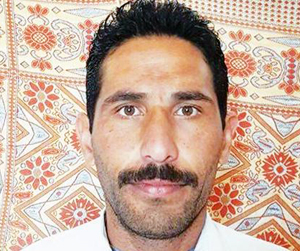Riyadh, Apr 17: Crown Prince Mohammed bin Naif ordered a cash reward on Friday for the Pakistani expatriate who saved the life of a citizen who was drowning in a valley in the Asir region.
Shaukat Amin saw Fahd Al-Qahtani in danger of drowning in the Tathleeth Valley in Asir. Al-Qahtani’s vehicle was sinking in the floodwaters following heavy rains in the southwestern part of the Kingdom.
Al-Qahtani was shouting for help as he stood on top of his vehicle. According to eyewitnesses, the heroics of Amin saved Al-Qahtani’s life.
The Civil Defense authorities in the region applauded Amin for his bravery. The amount of the reward was not announced.
Pakistani Ambassador Manzur Ul Haq told media persons that he was proud that a member of the Pakistani community rescued a citizen from almost certain death. Haq thanked the crown prince for his noble gesture of recognizing Amin’s act of bravery.






Comments
Good ......saved a life means saving whole humanity
Great :)
Add new comment